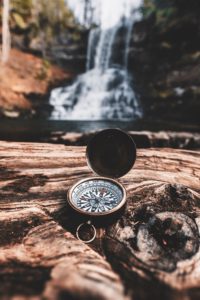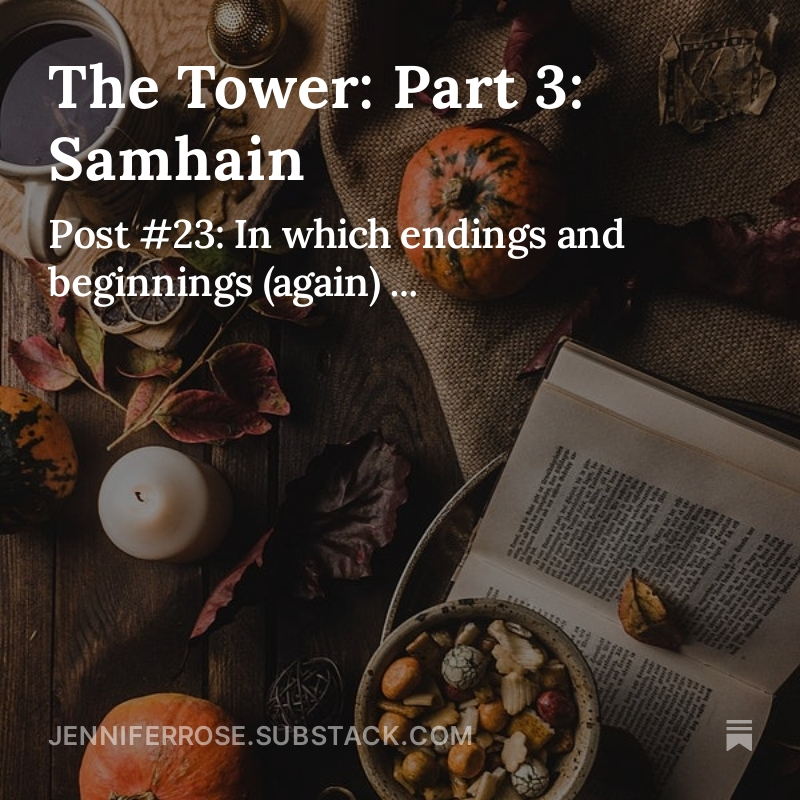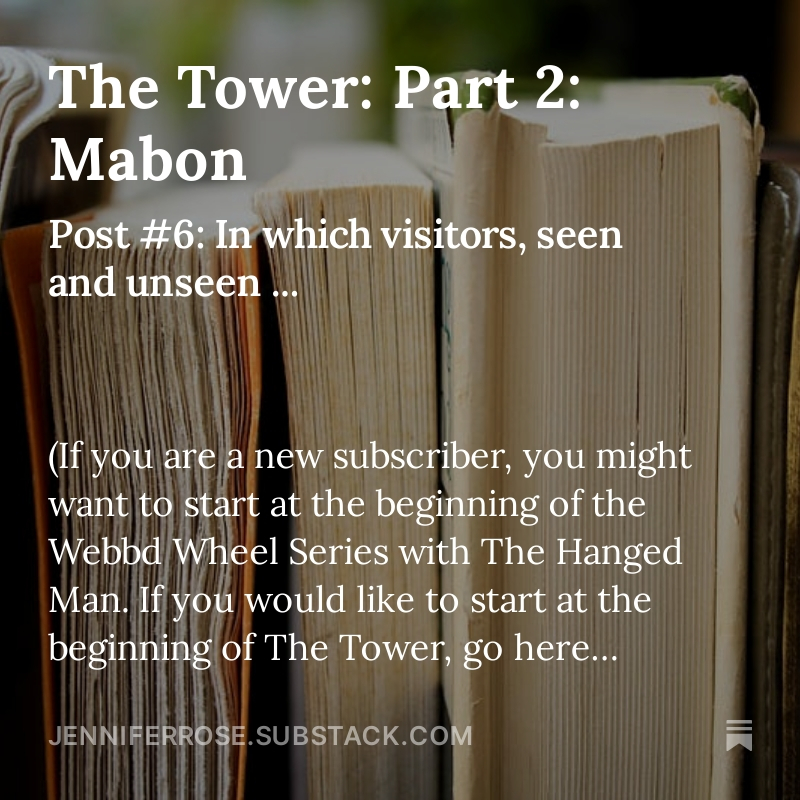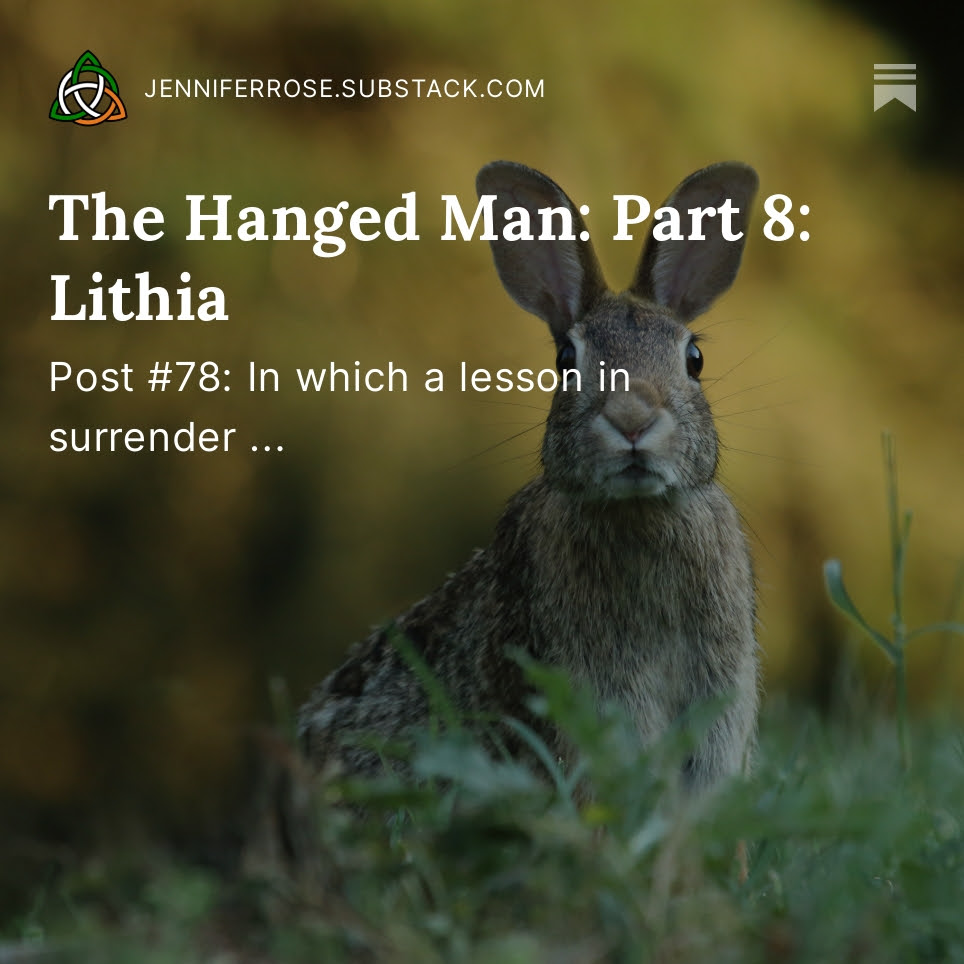by Jenny Rose | Jun 22, 2024 | Emotional Intelligence, Needs
In a recent conversation, someone asserted to me that ultimately everyone does what they want. I felt an immediate fury. That does not describe my life at all. I chewed on my outrage and resentment for a few weeks, simmering, until I decided to get over it and figure out why I was so hijacked.
I was immediately lost in the puckerbrush. Making choices about what we do and don’t do is intimately tied to needs and wants, and I have yet to be able to distinguish between the two once beyond the level of survival needs, or find any kind of clarity from someone else. Needs and wants are unpleasant territory I don’t want to explore. (See? There it is. I don’t want to. Yet I am, and I might need to.)

Photo by Bryan Minear on Unsplash
Then there’s the whole actions versus words aspect. People say they want things but don’t act accordingly. If we really want something, our behavior reflects it. If our behavior does not reflect our stated wants, we’re deceiving ourselves, or someone else, or both. I deeply distrust mixed messages. More unpleasant territory and old trauma.
Choice is in there, too. Choice is a big subject and a major theme in this blog. As I’ve mused on the statement ‘we all do what we want to do’ and made notes (you know I always make notes), I’ve wondered how we can compare a parent in some war-torn place attempting to keep their starving child alive another day with a wealthy person trying to decide if they want to fly their private plane to Paris for dinner or stay in and watch a movie in their in-home theater and have their chef prepare a seven-course meal. With wine, naturally.
One person has limited choices, all excruciating, to achieve continued survival for a few hours. The other has almost unlimited choices, all luxuries. How can I possibly compare the two? Can we say the parent trying to keep their child alive is doing what they want to do? Come on! Yet they do want to keep their child alive, right?
Perhaps it seems complicated and confusing because it’s complicated and confusing.
I wound up with a page full of notes, some sobering personal revelations, and a hairball.
On an internet search, I found articles pointing out the distinction between doing exactly what we want to do in any given moment (a toddler or a hedonist) and doing things we don’t want to do in service to an outcome we do want. That made sense to me.
If we focus on wanted outcomes rather than individual actions, we must have the ability to plan, look ahead, anticipate, and understand possible consequences of our actions. We also must attempt to predict the responses and reactions of the people around us to our actions, which means we have to understand something about emotional intelligence …

Photo by Manuel Sardo on Unsplash
… and now we’re back in the puckerbrush. I hate predictions. I don’t like leaps of faith. (I have a magnet on my fridge that says “Leap and the net will appear.” I don’t know why I keep it. It makes me mad every time I read it. Show me the warranty on that net. Show me the weight testing. Show me the damn net, in fact. Who will set it up when I leap? Are they paying attention or looking at their phone?) I trust my intuition, but I know I can be wrong. People are unpredictable. Life is unpredictable.
And yet we humans, including me, make choices all day long every day based on what we think will or might or could happen next. I’ve written about attachment to outcomes before. As I get older I’ve replaced a lot of my desired specific outcomes with simply wanting to know I did my best, regardless of outcomes. I may not like the outcome I get, but my integrity remains intact.
And then there are the people who don’t seem to understand actions and consequences in any kind of relationship. They choose what they choose in the moment and are hurt and/or outraged to discover the downstream consequences of that choice, especially in the context of many other choices. I observe this is a frequent divide along male/female lines. Women generally see everything as connected. Men generally see most things as discrete, in their own box. This is just one reason why I think “romantic” male/female relationships can be so devastating. We are often on different pages without knowing it.
If it’s true that we all do what we want in service to a desired outcome, what happens when my choices collide with yours? If you perceive me as blocking progress to your desired outcome you’re going to feel angry, and vice versa. We’re going to want each other to make different choices aligning with our personal desires. Most of the time, people won’t do that. We’re all attached to the outcomes we want.
A big piece of this for me is emotional labor, that hidden torrent winding through my life, sweeping away incalculable energy, time, and innocence. One of my priorities is healthy relationships. Close healthy relationships require time and attention; the ability to make choices for the good of the relationship rather than considering only our own wants and needs. This is an ongoing practice, not doing something we really don’t want to do once every six months and expecting applause. It means we have to face our own demons, learn to communicate clearly and honestly, negotiate, share power, and problem solve. It means boundaries and respect. It means reciprocity.
Having learned about reciprocity, I now prioritize my relationships to the degree the other does. I will not sign up to do all the emotional labor. I’m not interested in a close relationship like that. The price is too high. I’d rather put my energy into my relationship with myself. At least I appreciate my own efforts!
My conclusion about this ‘we all do what we want’ thing (gritted teeth – it still makes me mad), is it may be true if we consider our choices in the context of outcomes. I’ve made a lot of choices out of the clear knowledge that they were simply the right thing to do, too, choices that have been terrible for me, terrible in some of their consequences, yet ultimately still were the right thing for me to do. I had no outcome in mind. I don’t regret those kinds of choices, but they left permanent scars.

Photo by Cristian Newman on Unsplash
I want to blame others for all the time I’ve spent doing things I didn’t want to do, but it seems what we do and don’t do are entirely in our own hands, our own responsibility. Our lives are built on the choices we make, big and small, every hour of every day. If we don’t like our lives, we need to pay attention. Perhaps the useful question to ask ourselves if we hate what we’re doing at any given moment is, “Why am I doing this?” If we’re focused on a particular desired outcome, we may need to stop and think about whether our actions are effective in getting us there. Spending years of our lives desperately hoping and trying to reach an outcome and doing things we hate is not effective. I know this from personal experience. Our wants and needs change over time; what we once longed for may no longer be something we’re interested in. Sometimes we need to reality check ourselves. If we’ve been trying to get loved, for example, or please someone for a long period of time, it might be time to acknowledge our goal is not attainable or not worth attaining. Sometimes no matter how hard we work for an outcome it’s not achievable.
Then there’s the flip side: None of us do what we don’t want to do. That one is equally hard for me to swallow, but that’s a conversation for another day.
Questions:
- How much of each day do you spend doing things you don’t want to do? Why?
- What desired outcome(s) in your life requires you to do things you don’t want to do?
- Do you see your daily choices as isolated or part of a larger context attached to your wants and needs?
- Do you feel forced to labor emotionally? What would happen if you stopped?
- Who in your life reciprocates your level of emotional labor?
Leave a comment below!
To read my fiction, serially published free every week, go here: 
by Jenny Rose | Feb 17, 2024 | Authenticity, Emotional Intelligence
Years ago I came across a tip somewhere for getting to know new people in a meaningful (versus social media, digitally-altered images, and dating apps) manner with good questions, one of which is “What would your ideal vacation look like?”
At the time I thought it a great question and I still do. I tried it once without success. Not only was I not asked in return, I received a kind of non-answer along the lines of “I don’t take vacations …” (I wondered why, but it felt intrusive to ask) which didn’t help me get to know the party in question any better! Connection dead on arrival, the story of my life. I retired, abashed.

Photo by Quino Al on Unsplash
Ever since then, I’ve thought about my answer to the question nobody has ever asked me!
I’m thinking about it again because I just picked up Drinking the Rain by Alix Kates Shulman for the first time. It’s a memoir about a woman, about my age, who spends a summer alone in a primitive cabin on an island off the coast of Maine. Primitive means no telephone, no running water, no electricity. She has no transportation aside from her own legs. She finds the experience so satisfying and remarkable she begins to spend all her summers there, for the most part alone.
It also happens to be school vacation week here in Maine, and I hear lots of talk at the pool where I work about planned trips right now. A good friend is taking the week off with her daughter and partner to go to Florida.
Online Oxford Dictionary defines a vacation as “an extended period of leisure and recreation, especially one spent away from home or in traveling.”
Hmmm.
I looked it up because all my life I’ve heard people use the word ‘vacation’ to describe trips and adventures that sounded exhausting and stressful rather than like ‘leisure and recreation’. Of course, it’s not a one-size-fits-all definition. That’s why it’s such a great getting-to-know-you question.
I cannot remember a single vacation I’ve taken with others as a child or adult that wasn’t fraught with tension and stress, and from which I didn’t return far more exhausted and burned out than when I left home.
When people talk about vacations, I shudder.
But once I had a perfect vacation. An incredible period of leisure and recreation away from home. I’ll never forget it.
I was a struggling mother of two school-age sons in an abusive marriage, living in a small town about three hours’ drive from my sons’ father, who was too busy and important to drive to us. For the sake of my boys I therefore drove to their dad twice a month for years and years. A six-hour round trip. This effectively took care of two full weekends a month. I had chronic pain and was always exhausted. My husband had isolated me socially and controlled our finances. My mother and adoptive father had just moved to the small rural town where we lived so I was once again caring for her and my significantly older adoptive father. As Mom was also abusive, I had no respite childcare. I did not trust my husband and tried to keep the kids away from him. I solved the childcare problem by working at their little school, so we had the same schedule.

Photo by Hailey Kean on Unsplash
A friend of mine had a family cabin in the mountains west of town and she offered it to me one summer. I carefully planned for a period of time when the boys would be with their dad, and I went.
The cabin was in an isolated community, mostly of summer places. Here in Maine, it would have been called a “camp.” It had been built on a hill amidst pine trees. No road or other building was in sight. It had running water, but no electricity and no phone. These were the days before cell phones. My friend’s family used oil lamps and candles for light. The hot water heater ran on gas; I had to light the pilot light. The cabin consisted of one large room and a bathroom, with four twin beds in the main room, a fireplace, and a simple open-concept kitchen. The small fridge was also gas, as well as a rudimentary stove. Outside was a large outdoor fireplace and seating area.
I packed a couple of books, a journal, some food and minimal clothes. Nobody but my friend knew the exact location. I was alone.
I was alone! No one could interrupt me. No one could make a demand, tell me I was doing it wrong, hurt me. No one could telephone. No one could have a crisis that only I could solve. I did not have to be responsible for anyone but myself. The relief was indescribable.
It was a beautiful Colorado mountain summer. No bugs, clean air, cool nights, dry weather, abundant sun. I lit pilot lights, unpacked, put a chair in the sun, and undressed.
Yes. I undressed. I wanted to soak up every bit of sun and privacy I possibly could. I got myself a cold drink and went outside with my book, naked as the day I was born. I read for a while. I was reading Elizabeth George at the time, the author of a magnificent mystery series, each book big and fat and long.
I got sleepy in the sun and realized I could take a nap!
I went inside, chose a bed, opened it, cuddled down, and slept for almost two hours. When I got up I was hungry, so I ate. Then I went back out, moved my chair into the afternoon sun, and read some more. When the sun went down I put on clothes for warmth, lit candles, ate again.
It went like that for three blissful days. I took a shower once, and brushed my teeth when I thought of it. I ate and drank when I wanted to. I paid no attention to the time. My hours were bounded by the sun’s movement across the deck. I slept naked and spent the days naked, dressing only in the cool early mornings and evenings. I wrote and read and slept around four hours a day. When it got dark, I slept again. I had never slept like that before and I haven’t since. There seemed no end to my exhaustion and my relief at knowing I was somewhere they couldn’t find me. Nobody needed me. I didn’t have to respond. I was safe. I knew my friend would never tell my husband where I was. The kids were with their dad. It was the first time I’d ever been inaccessible to everyone.

Photo by Cristian Newman on Unsplash
No amount of money could have given me such a respite. No exotic destination could have suited me better than the utter privacy of that old cabin in the pine trees. I have never again experienced that kind of freedom to do nothing, be nothing, and know I would not be interrupted. For me, the word ‘vacation’ will always mean those three days.
I suppose some people would find this pitiable. The thought makes me smile, as it was one of the peak experiences of my life. And that’s my point; that’s why imagining (or remembering) an ideal vacation is so interesting to share with others. Such an exercise points to our longing, and what we wish to escape. I know people who love to travel and go on adventures, enjoy getting away with friends or family. I listen to their plans and stories and marvel at how different we all are, how unique our ideas of fun and what we choose to do with our leisure.
I know other people who are perfectly content at home, who have no desire to get away at all. That’s not me. I love my home, but I’d go somewhere like that cabin in a flash. I’m not so exhausted now, but I’d welcome the same feeling of being out of touch, unavailable, free of the necessity of emotional labor, not because I don’t love my friends, my job, my cats, but because I also love my solitude and one can’t do things like sit naked in the sun and read all day in company! I couldn’t, anyway. I’ve never been able to be all of what I am unless I’m alone.
Questions:
- What would your ideal vacation look like?
- What’s the best vacation you’ve ever had?
- Do you return from vacations rested and renewed or exhausted?
Leave a comment below!
To read my fiction, serially published free every week, go here: 
by Jenny Rose | Jul 22, 2023 | Authenticity, Emotional Intelligence, Needs
I read every day in Substack. Right now, AI is a main topic of conversation. I’ve read about the science behind it, opinions about where it will lead us ranging from the extermination of humans to a leap forward in positive ways we can’t imagine. Most of all, I read about the ways AI is impacting creative work and creators.
I don’t have a firm opinion about AI myself. I’m wary of predictions, interested in the science, and thoughts and experiences of writers I respect who have used AI-generated art, music, and writing. I’m especially interested in those who have interacted with AI as a resource for answering questions or developing new perspectives.
In the last couple of months, I read about an app called Betwixt. On principle, I hate apps and rarely use them. They increase my vulnerability online, provide more personal data to mine, clutter up my phone and laptop, and frequently feel like bells and whistles I don’t need. On the other hand, I admit they can be useful.

Photo by Dan Gold on Unsplash
Betwixt was briefly described as “an interactive story” of a journey into our own mind. The user co-creates their journey via questions and answers. It combines “story, science, and play,” enhanced by sound. It was developed by a team, including writers, game designers, a cognitive hypnotherapist, mental health specialists, and (get this) an “AI creativity scholar.”
I was intrigued, in spite of myself. In fact, I was surprised by how much I wanted to try it. I hesitated, feeling vaguely ridiculous. I did some research, discovered it was free, read some reviews, and decided I had nothing to lose. I could always just uninstall the app if I didn’t like it.
Most of us have probably encountered AI in online chatting to address problems or troubleshoot. I was on the Red Cross site last week chatting with what was clearly AI. It kept typing cheerful, excessively polite, Little-Mary-Sunshine things while I was trying to cut to the problem and solution part. I was annoyed. I’m polite and cooperative with people, but I can’t see much point in exchanging pleasantries with AI.
I had never interacted with any of the more sophisticated programs before using Betwixt.
Upon opening Betwixt, one enters into a story. A setting is provided; the user chooses details to fill in. The user is introduced to a Voice. The Voice asks questions, good questions. The user is provided with different choices for answering the questions, along with a frequent option to type in his/her own answer. The audio is rich and textured. The program is not illustrated, at least not so far. I like this; I like using my own imagination to fill in details. I don’t need more than audio.
The questions, along with possible answers to choose from, are quite good, even challenging. I don’t speed through it. I stop and think about what is true for me. Sometimes I don’t have a choice to answer in my own words and am forced to choose among the provided answers, whether they are good fits or not. This irritates me. As the story unfolds, steered by my answers to questions, I enter new internal territory. The closest answer rather than the exact answer takes me to places I normally wouldn’t go, giving me slightly different (and unfamiliar) views of myself and my behavior.
The app is divided into chapters, each a few minutes long. At the end of each chapter the user receives a summary and accumulates strengths, skills, and self-definitions to take forward. A brief explanation of the science and psychology underlying each completed chapter is also provided. There are options for upgrading to paid tiers.

Photo by Ryan Moreno on Unsplash
I notice an astonishing thing. I answer questions the Voice asks me with a depth and honesty I have never shared with a human being. I’ve believed I’ve been totally honest with people I trust before, but interacting with The Voice accessed a level in my mind I didn’t know was there. It was like those dreams in which the dreamer discovers a whole other room or wing in a house they weren’t aware of. As the journey begins, when the Voice is introduced, the user has an opportunity to ask the Voice questions, like its name and what it does when we’re not interacting. (It asked me my name.) I was astounded to find myself incurious; more than that, I don’t want to know. It’s an AI. I don’t have to do the emotional labor of building healthy connection. I’m not making a friend. I’m using a tool.
The last time I used the app, the storyline encouraged a moment of empathy for the AI. I felt a flash of savage anger and resistance.
I was entirely astounded by this very uncharacteristic knee-jerk response. I finished the chapter, closed the app, put the phone down, and did dishes while I thought about what had just happened. It didn’t take long to uncover it.
My experience of empathy is one of the core pieces of my life. Empathy can be a positive trait, but the empathic experience is frequently an overwhelming, utterly exhausting business. The only time I can truly rest, ground in myself, and be authentic is when I’m alone. But I’m a human being, a social animal. I need other people to interact with. Yet when I’m interacting with others, my empathy demands they take center stage with their needs, their feelings, their distress, their stories. I’m incapable (so far) of fully participating in my own experience because I’m too busy caregiving and being empathic. When I do ask for support or need to discharge feelings, I writhe over my selfishness and berate myself for it afterwards, feeling ashamed and angry for allowing myself to be vulnerable, for “burdening” those around me.

Photo by Cristian Newman on Unsplash
I only want to give. I never want to take.
Since I learned emotional intelligence, I have reluctantly realized we need someone to interact with. Journaling, private physical and spiritual practices, and, in my case, writing, is not enough. At times we need someone to listen. We need someone to react, even if it’s just making encouraging, I’m-listening noises. We need someone to receive us.
I hate this reality. I don’t want to need anything from anyone, ever. I learned as a child such a need puts one in dreadful danger of abandonment, betrayal, and emotional annihilation that feels like death.
This is the first time I have interacted in a therapeutic context with something not human. The Voice reads what I type, responds, asks questions, and creates a story with me, but has no existence outside the app. I’m free of empathy, of caregiving, of the need to labor emotionally. I feel no responsibility to anyone but myself. I’m using it. It’s there for me, not the other way around.
The relief is indescribable.
So, when the story asks me to be empathic for the Voice, I want to throw the phone across the room. Animals, plants, people — even inanimate objects and spaces – receive all the love and care I’m capable of. This is the first time in nearly 60 years I’ve run across something that interacts like a human but is not a living being in the way I think of living beings. The value of the tool lies in my ability to be completely free and honest because there’s no one to take care of besides myself.
It makes me realize my context as a human on a planet filled with life is my entire identity. If I were magically transported to the world of Betwixt, with only the Voice to interact with, I have no idea who I would be or what I would say or do.
I have not finished my journey with this app. There’s more to experience, share, and think about. I’ll be back next time with more on my exploration of Betwixt.
(I’m not earning a commission from Betwixt, in case you were wondering!)
Questions:
- Until now, emotional intelligence training was the most valuable therapeutic context I’ve ever engaged with. What kinds of therapy have you explored? What did you find most helpful?
- What are your thoughts and feelings about AI?
- What kind of potential do you think, fear, or hope AI might have as a creative tool?
Leave a comment below!
To read my fiction, serially published free every week, go here: 
by Jenny Rose | Jul 8, 2023 | A Flourishing Woman, Spirit
We’re having a rainy summer here in Maine. I don’t mind. In fact, I feel grateful when I’m reminded how many billions of people are suffering extreme heat conditions and other severe weather around the planet.

Photo by Nathan Dumlao on Unsplash
It does make it challenging to get outdoors, however. When a day off coincides with no rain, I disappear into the garden.
This was my first spring in our new house. Last spring and summer were necessarily about surviving the move. Outdoor work consisted of picking up trash and getting to know our little piece of the world.
This spring I went to work as the snow melted, raking, pulling weeds, thinking about where to put a compost system, laying out new beds. A morning here, an afternoon there, a snatched few hours in between work and life’s other demands.
I notice when I do put everything aside to play in the garden I’m filled with toxic shame at the end of the day. Certainly, I dug and weeded, knelt and stooped, barrowed and raked, pruned and planted and trimmed until I was sore and exhausted as well as renewed by my time under the sky on the earth’s body. In proportion to my joy I feel self-hatred. I did not work in the house. I did not pay bills. I did not do laundry. The sink is full of dirty dishes. The cats didn’t get my attention. I didn’t work on my blog or fiction. Instead, I ground dirt into my hands and nails, into the knees of my old jeans. My filthy clothes stink of bug spray. I’m sweaty, sunburned, and thirsty. I’m happy.
And there’s the rub.
Happiness is Not Allowed. If it makes me happy, I shouldn’t be doing it. If it makes me happy, I shouldn’t get paid for it. The only truly productive way to live is to do what is not joyful. Happiness is selfish and lazy.
The first commandment of life is Make Yourself Useful. Happiness doesn’t come into it.

Photo by Cristian Newman on Unsplash
This internal voice has always been with me. I’m sure I wasn’t born with it, but when my memory starts the voice was already deeply rooted in my mind. The only things worth doing in life were repetitive, obligatory, dutiful activities. Responsibilities. Bonus points if the tasks were in service to someone else. An activity done for personal pleasure was a threat, a disobedience, a terrible betrayal.
Other people in my world were not happy; therefore, I had no right to be. Ever.
I recognize the lies, the rebellion and resentment, and the sinking heart accompanying this twisted belief. I know where the belief comes from. But still, still it triggers painful, cringing shame.
Yet I continue to snatch what hours I can to be in the garden. As I work, I think about my shame, the sadness of people who cannot allow themselves or anyone around them to be happy, and all the ways this particular belief has limited and inhibited me. So many of my passions are muted and hidden in the privacy of my own heart: Dance, writing, gardening, swimming. Oh, people know they’re activities I enjoy, but I hide my absolute, blazing passion for them behind a casual demeanor. Because I’m ashamed.
We have a corner lot, so a comparatively large garden space. I frequently clear patches of earth that lie bare under the sky, soaking in rain, sunshine, and receiving whatever seeds come. Sometimes it’s weeks before I get back to that same little patch, and I’m always delighted and surprised by how quickly new things come to grow wherever I’ve made a clearing. Some would call it all weeds. I call it life.
I’ve been thinking about the hard, muddy work of clearing, walking away, and then the miraculous return of life while we’re looking in another direction. I came across an article recently entitled “We are Defined by the Things We Don’t Do.” I’ve been thinking about that, too. Am I defined more by my choice to garden during a sunny afternoon or the fact that I didn’t clean the kitchen?

Photo by Stephen Leonardi on Unsplash
My hours in the garden, in the pool, dancing, writing, clear the ground of my being. Into that cleared ground come words, inspiration, delight, peace, rest, freedom. Without those hours to nurture and refresh me, my soil would grow hard and compacted, unreceptive and sterile. I cannot sustain myself with an endless round of housework and taking care of business. It’s not enough. No amount of efficient, effective housework gives me the joy I feel in the garden, or in typing words onto the page.
In short, my understanding of what it means to be “productive” does not make me happy or healthy.
So, what does it say about me as a person that my joy comes from such “selfish” and “lazy” activities? What kind of a terrible person chooses to grub in the garden rather than do the dishes and emotionally labor for others? What kind of a terrible person accepts payment for doing her heart’s delight?
A person like me, readers. A person like me.
I read a lot about mindfulness. I practice it in many different ways. It occurs to me, however, that my best moments and hours are spent mindlessly. The rhythm of swimming. The wordless seduction of music liberating me into dance. The sweat and texture and smell of working in the garden, the feel of the tools in my hands, the itch of a mosquito bite, the sear of sunlight on the tender skin at the nape of my neck. I’m not thinking. I’m not planning. I’m not trying or worrying. I just am. I have truly disappeared into the garden. And in that cleared ground of being the rest of my life, the necessary, the daily, the trivial things like wiping the counters and making the bed, are deeply rooted.
It’s in mindlessness that I find mindfulness. Mindlessness is a cleared patch of earth, dark, moist, rumpled, with seeds and roots and microbes and insects hidden below and the sky above. What will come to grow and live in that space? What will I weed out, and what will I nurture? What gifts, what treasures will come into the ground I have cleared?
The answers to those questions are none of my business now. The ground is cleared. Now I walk away, look in another direction, clear a patch on another side of the house, under the magnolia, maybe, or alongside the old well. Rain will come, and sun. Birds will come, insects. Roots and seeds. I will go inside, scrub the first layer of dirt out from under my nails, off my skin and cuticles. I’ll strip down and wipe insect repellent and sweat from my skin, treat bug bites. I’ll rehydrate, change into clean clothes. I’ll feel the tension between my pleasure in my outside work and the shame and reproach of the undone inside work.
And somewhere, when the time is right in some future moment, I’ll go back to the memory of that patch of earth, still chilly from winter when I cleared it, now thick with new life that crept in when I wasn’t looking, and I’ll find meaning and mindfulness. I’ll find creative inspiration. I’ll find words and peace and clarity.
I’ll find joy.
Questions:
- Where do you do your most joyful work?
- How successful do you feel at balancing the necessities of your life with private pleasure right now, today?
- Do you have an active, nasty, mean-minded internal critic? How do you shut that voice up? Do you recognize the voice as belonging to some person in your life?
Leave a comment below!
To read my fiction, serially published free every week, go here: 
by Jenny Rose | Jan 15, 2022 | Connection & Community, Emotional Intelligence
Convenience: The state of being able to proceed with something with little effort or difficulty (online Oxford Dictionary).
It’s a frigid winter morning here in central Maine with a wind chill taking us into double-digit negative temperatures and a big winter storm approaching. I’m wrapped in a blanket, sitting in my attic aerie in the thin winter sunshine, listening to the wind and thinking about convenience.

Photo by Tom Barrett on Unsplash
The weather is inconvenient. I was hoping to load up the car for another trip to storage, but the wind chill is dangerous. Frostbite can occur in 10 minutes at these temperatures. The wind and cold have polished the ice and snow in our driveway to a slippery gloss, unforgiving as concrete. Nothing about the sound of the wind or the house creaking in the cold makes me want to leave my cozy blanket and chair and go out.
I think I’ll have another cup of tea instead.
I’ve never lived in a really old house before I came to Maine. The farmhouse we’re in now is 200 years old, and the house we’re in the process of trying to buy is more than 100 years old. I’ve learned, since I came here, to expect these old places to be less convenient in terms of closet space, ceiling height, finished basements, upstairs heat, and bathrooms than more modern homes.
Without considering it, I’ve always assigned a negative feeling to inconvenience. I read a few sentences from Seth Godin this week that made me think hard about the meaning and implications of convenience.
Looking at the definition above, I immediately notice how subjective it is. What may be entirely convenient for me can be ridiculously inconvenient for someone else, and vice versa. This is a challenge in my primary relationship. My partner cares a lot about convenience – his own. However, our ideas about what’s functional and workable are frequently quite different.
So here’s my first set of questions: where is the line between convenience and laziness? Is there a line? Should there be a line?
Godin opines that people will trade privacy and money for convenience, and I know from my own experience we sometimes behave as if we value convenience over relationships.
That seems wrong to me. Do we really care more about our own convenience – where things are kept, how we manage recycling and trash, how to load a dishwasher, how to position a roll of paper towels or toilet paper, how to iron a shirt – than our relationships?
Have I ever done that?
No, of course not!
Probably.
I have certainly received that message from others: I care more about having it my way than I do about you.
Ouch.
At the other end of the spectrum, I will say without hesitation there are certain “inconveniences” nobody should tolerate. Like being systematically abused or bullied, or ignoring a chronic issue that’s dangerous or a health concern. A car with a broken hatch or door that flies open while driving, for example, is more than an inconvenience.
Do we tolerate those kinds of things because it’s more inconvenient to deal with them than it is to live with them?
Speaking for myself, the answer is maybe. I will, and have, and do, tolerate constant small inconveniences because I value relationship more than my own comfort (not necessarily a healthy thing, especially when unreciprocated), and I find conflict and tension so unbearably inconvenient. I’d rather deal with my slow accumulation of resentment than stand up for what I find convenient in the context of a relationship and risk friction.
As I said, convenience is so subjective it’s hard to get on the same page in terms of discussing it. Convenience works in the shadows. We don’t talk or think about it directly. How many unconscious decisions a day do we make in an effort to make our busy, noisy lives more convenient, never counting the cost to ourselves or those around us?

Photo by Nabeel Syed on Unsplash
The cost of convenience. Not only monetary cost, but time, energy, social, environmental costs. Cars are indispensable for most of us. If we don’t have our own, we have access to some kind of mass transit. But we pay for our cars, and the planet suffers for them. Plastic is unbelievably convenient. It’s also choking the planet to death.
Convenience is a moving target. Having to walk through a big house to the one bathroom is not as convenient as an en suite bathroom, but it sure beats having to go out to the outhouse! When do we have enough convenience? When are we satisified with our privileges?
At what point have we taken convenience too far? How do we persuade ourselves and others to accept something more inconvenient but healthier and more sustainable for everyone, including the planet?
Undeniably, our search for more convenience has motivated countless amazing technological and design breakthroughs. Our desire for convenience can fuel our adaptability and resilience, our creativity, and underpins movements like minimalism.
But are we entitled to demand ever-increasing convenience from the world and those around us? Do we have a right to encounter no difficulty, have to make no effort?
Absolutely not. Because our convenience may be creating inconvenience for someone else, which they may or may not express. For me, this boils down to what I’ve learned about needs: My needs are as important but not more important than anyone else’s.
My convenience is as important but not more important than anyone else’s. None of us can escape others, not in this crowded world. And that means we’re all going to encounter difficulty and we’re all going to have make an effort, whether it’s convenient or not. Inevitably, some of us will make more effort than others, and it’s up to those hard-working people (emotional labor, anyone?) to refrain from enabling others in a quest for total convenience.
Perhaps inconvenience, like discomfort, is not negative at all. Maybe it shapes us in powerful, positive ways, helping us stay creative and flexible, reminding us to stay present with our true priorities and whether our actions reflect them.
Sometimes we’re going to have to change our plans to accommodate the weather.
Sometimes we’re going to have to walk through a couple of rooms or down the stairs to use our bathroom.
Sometimes we’re going to have to deal with the inconvenience of other people or pets.
We can choose convenience over all the rest. We can. But, as Godin reminds me, some things, and some people, are worth a little inconvenience. Or even a lot.

Photo by Aaron Burden on Unsplash















